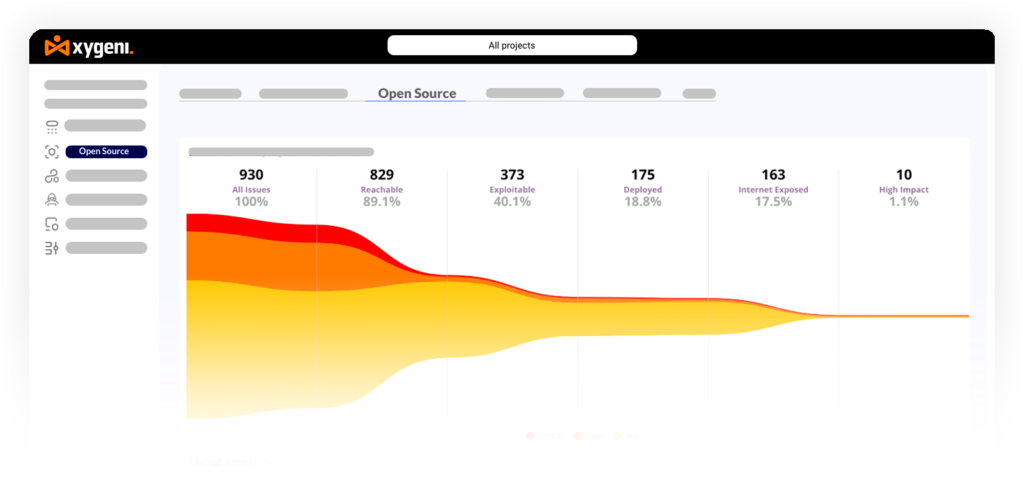Applications drive today’s digital business, but they also face constant threats. Attackers target APIs, open-source packages, and misconfigurations to steal data or disrupt services. To defend against these risks, teams must understand what is application security, the formal application security definition, and what is app security in practice. Many professionals use the term what is AppSec to describe the same discipline. In short, securing applications ensures sensitive data stays safe, systems remain reliable, and users can trust the software they use.
Application Security Definition #
What Is Application Security? #
The application security definition covers the tools, practices, and processes that protect apps from attacks during every stage of the Software Development Life Cycle (SDLC). Put simply, what is app security? It is the practice of designing, testing, and maintaining applications so they can resist both known and emerging threats. Many professionals also use the term AppSec for the same concept. It includes everything from securing source code to monitoring deployed applications. In addition, the Open Web Application Security Project (OWASP) has shaped industry understanding through its resources, such as the widely used OWASP Top 10, which highlights critical risks. Therefore, application security is not abstract theory. It is a practical set of measures that developers and security teams apply every day to block real-world attacks and protect software integrity.
Why Is Application Security Important? #
Understanding what is application security goes beyond meeting compliance checkboxes. It provides organizations with the ability to:
- Protect sensitive information and preserve user trust.
- Reduce business risks by preventing costly breaches.
- Meet regulations such as GDPR and HIPAA.
- Safeguard revenue by keeping critical services available.
As a result, following a clear application security definition is fundamental for resilience and long-term business continuity.
Key Characteristics of Application Security #
Several characteristics define what is app security and explain its importance:
- Early vulnerability detection – Identify risks during development instead of after release.
- Risk reduction – Lower financial, reputational, and operational damage.
- Regulatory alignment – Meet industry standards without slowing development.
- Cost savings – Fixing vulnerabilities early is cheaper than post-breach recovery.
- User trust – Secure apps earn customer confidence.
- DevOps agility – Integrate AppSec into CI/CD to stay fast and secure.
Therefore, when asked what is AppSec, you can explain it as a set of practices that make software secure, resilient, and trustworthy.
Essential Tools and Practices in AppSec #
To understand what is AppSec in practice, you need to look at the main tools and methods that bring it to life in daily development workflows:
- Static Application Security Testing (SAST): Detects vulnerabilities in source code before release.
- Software Composition Analysis (SCA): Identifies risks in open-source and third-party packages.
- Dynamic Application Security Testing (DAST): Finds weaknesses in running applications by simulating attacks.
- Interactive Application Security Testing (IAST): Provides continuous feedback during DevOps pipelines.
In addition, frameworks like the OWASP Application Security Verification Standard (ASVS) and the NIST Secure Software Development Framework (SSDF) help organizations build secure-by-design practices.
👉 For a deeper dive into these categories, check our blog on essential types of appsec tools.
Best Practices for Securing Applications #
To apply the application security definition effectively, teams should follow proven practices. These include:
- Integrating SAST and DAST to cover both code and live applications.
- Using the OWASP Top 10 as a benchmark for common risks.
- Applying strong authentication to protect APIs and endpoints.
- Continuously monitoring dependencies to avoid malicious or outdated packages.
- Automating checks in CI/CD pipelines for consistency across the SDLC.
In short, best practices turn security principles into actions that strengthen resilience.
OWASP’s Role #
The Open Web Application Security Project (OWASP) remains the most influential global community for AppSec. It provides research, publishes standards, and releases resources like:
- OWASP Top 10: The industry benchmark for critical risks.
- OWASP ASVS: A detailed framework for building and testing secure apps.
However, OWASP’s importance goes beyond lists. Its projects have shaped how developers worldwide understand threats and apply safeguards.
Modern Challenges #
Even with best practices, teams still face challenges such as:
- Legacy vulnerabilities from outdated or inherited code.
- Risks from third-party and open-source libraries.
- Skill gaps that require automation and developer-first solutions.
- The need to integrate security seamlessly into agile DevOps workflows.
In other words, knowing what is AppSec is only the beginning—consistent application across the SDLC makes the real difference.
How Xygeni Supports AppSec #
Xygeni helps organizations move beyond fragmented tools with an all-in-one AppSec platform. Instead of juggling separate scanners, Xygeni unifies AppSec into a single workflow designed for DevSecOps.
Xygeni integrates:
- SAST to secure source code early.
- SCA to manage open-source and third-party risks.
- Secrets and IaC security to prevent exposed credentials and misconfigurations.
- Anomaly detection to catch unusual pipeline behavior.
Unlike siloed tools, Xygeni applies prioritization funnels and exploitability insights, so teams fix what matters most without drowning in noise.
👉 Get started with a free trial and see how Xygeni’s platform can transform your application security strategy. You can also explore how we help teams consolidate 10 tools into one.

FAQs #
What is Static Application Security Testing (SAST)? #
SAST scans source code to detect vulnerabilities before execution, giving developers early feedback.
What is Dynamic Application Security Testing (DAST)? #
DAST checks a running app by simulating attacks to see how it responds in real time.
What is the Open Web Application Security Project (OWASP)? #
OWASP is a community that publishes resources such as the Top 10 and ASVS, shaping global AppSec practices.
What is AppSec Testing? #
AppSec testing combines SAST, DAST, IAST, and SCA to evaluate code, dependencies, and live applications before deployment.

